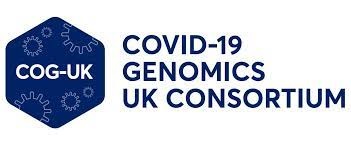
The world’s largest study of the genetics of critical COVID-19, involving more than 57,000 people, including Royal Free London patients, has revealed new details about some of the biological mechanisms behind the severe form of the disease.
Some 16 new genetic variants associated with severe COVID-19, including some related to blood clotting, immune response and intensity of inflammation, have been identified.
These findings will act as a roadmap for future efforts, opening new fields of research focused on potential new therapies and diagnostics with pinpoint accuracy, experts say.
Researchers from the GenOMICC consortium – a global collaboration to study genetics in critical illness – made these discoveries by sequencing the genomes of 7,491 patients from 224 intensive care units in the UK, including 153 patients from Barnet Hospital and 22 from the Royal Free Hospital.
Their DNA was compared with 48,400 other people who had not had COVID-19, participants in Genomics England's 100,000 Genomes Project and that of a further 1,630 people who had experienced mild Covid.
Determining the whole genome sequence for all participants in the study allowed the team to create a precise map and identify genetic variation linked to severity of COVID-19. The team found key differences in 16 genes in the ICU patients when compared with the DNA of the other groups.
They also confirmed the involvement of seven other genetic variations already associated with severe COVID-19 discovered in earlier studies from the same team.
The findings included how a single gene variant that disrupts a key messenger molecule in immune system signaling – called interferon alpha-10 – was enough to increase a patient’s risk of severe disease.
This highlights the gene’s key role in the immune system and suggests that treating patients with interferon – proteins released by immune cells to defend against viruses – may help manage disease in the early stages.
The study also found that variations in genes that control the levels of a central component of blood clotting – known as Factor 8 – were associated with critical illness in COVID-19.
This may explain some of the clotting abnormalities that are seen in severe cases of COVID-19. Factor 8 is the gene underlying the most common type of haemophilia.
Dr Rajeev Jha, the principal investigator at Barnet Hospital for the study and a consultant anaesthetist and intensivist, said: “These results have helped give us a deep understanding of the process of the disease and will help us to find more effective treatments. I am so proud of our patients for taking part and for our staff for all their recruitment and research efforts. This massively improves our understanding of how our genetic makeup influences being severely affected by COVID-19. Our successful recruitment here at Barnet Hospital was thanks to the hard work of research practioner Vinod Krishnamurthy and senior research nurse Lai Lim.”
In a letter of thanks to staff at the Royal Free London, Dr Kenneth Baillie, chief investigator for the trial, said: “Thanks to your efforts, GenOMICC is the largest consented research study in the history of UK critical care medicine …. more importantly it has already informed the selection of drugs in large scale clinical trials and continues to find new insights into the molecular mechanisms of disease.”
Staff who took part in the trial from RFH included research nurses Christine Eastgate and Sara Mingo Garcia, as well as Amitaa Maharajh, senior research nurse, Glykeria Pakou, clinical trial practitioner and Mark de Neef, principal investigator and ITU consultant, (formerly led by Daniel Martin, ITU consultant).
The findings have been published in Nature.
 Translate
Translate
